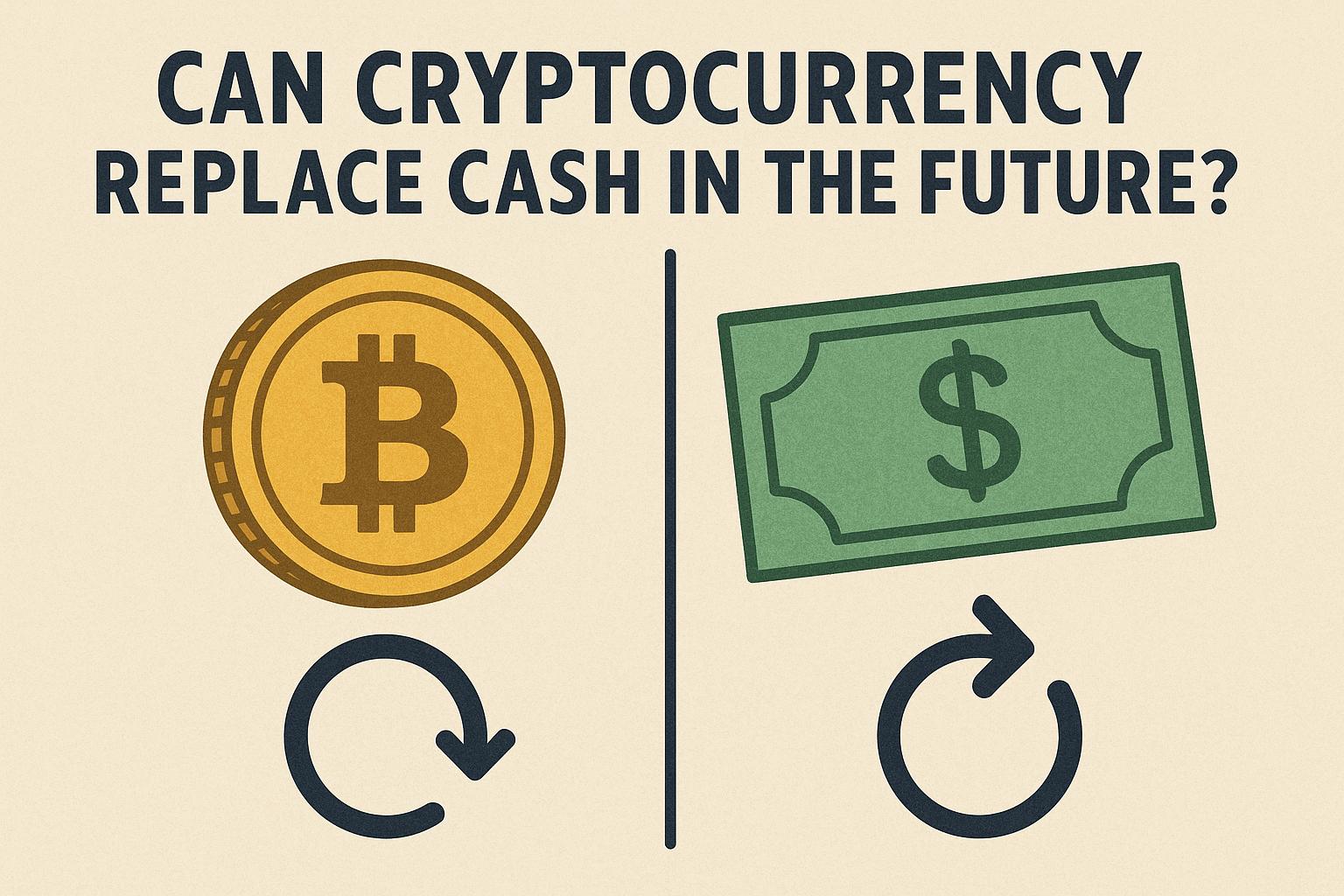Introduction
The use of cryptocurrency has grown significantly over the past decade, with Bitcoin and other digital currencies becoming more mainstream. This trend raises the question: can cryptocurrency replace cash in the future? To address this, several factors need to be considered, including transaction security, scalability, and societal acceptance.
Understanding Cryptocurrency
Cryptocurrencies are digital or virtual currencies that use cryptography for security. Unlike traditional currencies issued by governments, cryptocurrencies operate on decentralized networks based on blockchain technology. This decentralized nature offers some unique advantages but also presents specific challenges.
Advantages of Cryptocurrency
Cryptocurrencies have become a point of interest due to their potential to revolutionize the way we think about money and transactions. Here are some aspects of cryptocurrencies that stand out:
Security and Transparency: Cryptocurrencies offer high levels of security due to their underlying technology. Transactions are recorded on a blockchain, providing a transparent and immutable ledger. This means that once a transaction is entered into a blockchain, it cannot be altered or deleted, leading to reduced risk of fraud and increased trust among users.
Reduced Transaction Costs: Traditional banking systems often involve intermediaries that increase transaction costs. Cryptocurrencies can significantly reduce these costs, making them an attractive option for cross-border payments. With fewer intermediaries involved, the transactions are often faster and cheaper, appealing to both individuals and businesses looking to streamline their payment processes.
Challenges Facing Cryptocurrency
Despite their advantages, cryptocurrencies face several challenges that need to be addressed to consider them as a potential replacement for cash:
Volatility: One of the main challenges of cryptocurrencies is their volatility. Prices can fluctuate widely within short periods, making them a risky investment and unreliable for daily transactions. This volatility can be attributed to several factors, including market speculation, regulatory news, and overall adoption rates.
Scalability: Current blockchain systems struggle with scalability issues. The ability to process a high volume of transactions quickly and efficiently is crucial if cryptocurrencies are to replace cash. While technologies are being developed to address these issues, such as the Lightning Network for Bitcoin, full scalability has not yet been achieved.
Regulatory and Acceptance Issues
The global regulatory landscape for cryptocurrencies is varied and evolving. Some countries embrace this innovation, while others are more cautious or even dismissive.
Sociocultural Factors: For cryptocurrencies to replace cash, a significant cultural shift is required. People will need to adapt to and trust digital transactions over physical ones. This could take time, as many people are still more comfortable with tangible forms of currency. Education on the advantages and functionalities of cryptocurrencies will be essential to aid this transition.
Regulatory Challenges
Regulation is one of the key hurdles that need addressing. Governments around the world are grappling with how to regulate cryptocurrencies, with approaches ranging from outright bans to full endorsement. A unified stance on the regulation could aid in the global acceptance and easier integration of cryptocurrencies into mainstream society.
Technological Developments
Cryptocurrency technology is constantly evolving. Innovations such as smart contracts and decentralized finance (DeFi) could potentially streamline many financial operations. They offer new ways of conducting transactions and managing financial assets without the need for traditional intermediaries, thus striving for more efficiency and security.
Technological Evolutions and Developments
Continuous developments in technology may aid in overcoming some challenges that cryptocurrencies presently face:
Improved Security Protocols: As cryptographic technology evolves, so too does the security of cryptocurrencies. Enhanced security protocols can further assist in reducing fraud and building trust among users.
Enhanced Transaction Speed: Efforts are continually made to increase the speed of transactions. As these developments advance, they may help in addressing the current scalability issues, leading to quicker transaction verifications.
Impact on the Financial Industry
If cryptocurrencies were to replace cash, it would have profound effects on the financial industry. Banks, payment processors, and financial service providers would need to adapt their business models to incorporate digital assets.
Shifts in Banking Processes
Should cryptocurrencies gain greater acceptance, traditional banking services would face significant changes. Banking institutions would need to integrate cryptocurrency management and dealing within their operations. Financial service providers may evolve their offerings to include facilitation in buying and storing cryptocurrencies or even developing their digital currencies.
Adapting Financial Products
Cryptocurrencies’ integration into the financial system would also lead to an overhaul of many traditional financial products and services. From loans to savings accounts, incorporating digital currencies may redefine how financial products function and are utilized by consumers.
Conclusion
While cryptocurrencies offer numerous advantages over traditional cash, significant hurdles remain before they can be considered a full replacement. Technological, regulatory, and societal challenges must be addressed to realize such a transformation. As these issues are tackled, the financial landscape may change dramatically, but whether this leads to a world without cash remains to be seen.
For further exploration of the potential impacts of cryptocurrency on the financial system, consider reviewing comprehensive studies and expert analyses available from reputable financial research institutes and think tanks.
In conclusion, the possibility of cryptocurrencies overtaking cash remains uncertain. Technological advancements, regulatory adaptations, and cultural acceptance need to converge to realize such a future. The evolution of cryptocurrencies continues to spark discussions, encouraging not only technological development but also prompting societal debates about the future of money and financial systems worldwide.
This article was last updated on: October 9, 2025







